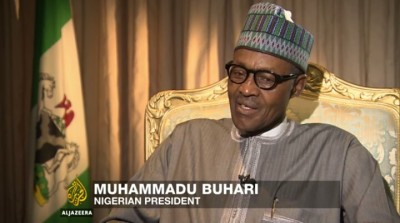
Majority of Nigerians have kicked against the decision of the Muhammadu Buhari administration to drag the country into a Saudi Arabia-led coalition against terrorism.
The Nigerians expressed their views in a poll conducted by PREMIUM TIMES over two weeks.
More than half – 55 per cent – of the respondents who participated in the poll said they were opposed to Nigeria joining the coalition.
Of the 55 per cent who were against joining the coalition, 48 per cent opposed it mainly on religious grounds.
They said Nigeria is not an Islamic country and thus should have no business being part of a coalition of mainly Islamic countries.
The remaining seven per cent said the country should not join the coalition at a time like this when it is faced with a myriad of security and economic problems.
The results of the poll, however, shows a large number of Nigerians also support the president’s action to join the coalition, with 40 per cent of respondents backing the move.
Fifteen of the 40 per cent of supporters appear to be staunch supporters of Mr Buhari. They said they support Nigeria’s membership of the coalition as long as the President thinks the coalition will benefit the country.
Only a quarter of the respondents, 25 per cent, said joining the coalition will help Nigeria defeat Boko Haram and help the global effort to defeat the Islamic State, ISIS.
Boko Haram pledged allegiance to the leader of ISIS, Abu Bakr al-Baghdadi, also known to his followers as Caliph Ibrahim, in 2015.
“We announce our allegiance to the caliph… and will hear and obey in times of difficulty and prosperity,” Boko Haram leader, Abubakar Shekau, said in an audio message at the time.
“We call on Muslims everywhere to pledge allegiance to the caliph.”
Six per cent (120 people) of the those who partook in the poll were however indifferent to the country’s membership of the coalition.
They were of the opinion that nothing will change whether the country joins the coalition or not.
Last December, the government of Saudi Arabia announced the creation of the alliance of 34 mainly Muslim countries to coordinate the fight “terrorist organisations”.
According to Saudi defence minister, Mohammed bin Salman, the coalition, which is made of up countries in the Arabian Gulf peninsula such as Qatar, Bahrain and Jordan, also included African and Asian countries like Malaysia and Nigeria.
“It is time that the Islamic world take a stand, and they have done that by creating a coalition to push back and confront the terrorists and those who promote their violent ideologies,” Adel al-Jubeir, Saudi’s foreign minister, told journalists in Paris.
While welcoming the coalition as a means of tackling the threat posed by Boko Haram in North-Eastern Nigeria and other terrorist groups in the region, President Buhari, however, told King Salman bin Abdul-Aziz of Saudi Arabia, during a meeting in February, that the country was not keen on being part of the coalition.
“Even if we are not a part of it, we support you,” he said.
But in an interview with Aljazeera Television earlier this month, Mr. Buhari recanted his original reluctance towards making the country part of the coalition declaring that the country was part of the alliance.
“We are part of it because we have got terrorists in Nigeria that everybody knows which claims that they are Islamic,” he said. “If there is an Islamic coalition to fight terrorism, Nigeria will be part of it because we are casualties of Islamic terrorism.”
He however refused to disclose how the coalition will benefit Nigeria.
When asked how Nigerian Christians will take the news of his joining the coalition, Mr Buhari said the country’s sole intent of joining the coalition was to fight terrorism adding that the opinions of those he referred to as “religious bigot” did not count.
“I have just told you it is the Boko Haram itself that declared loyalty to ISIS. Now, ISIS is basically based in Islamic countries. If there is a coalition to fight terrorism, why can’t Nigeria be part of it.”
“Why can’t those Christians that complain go and fight terrorism in Nigeria or fight the militants in the South. It is Nigeria that matters, not the opinions of some religious bigots,” he added.
The Christian Association of Nigeria (CAN) in December had kicked against Nigeria’s membership of the alliance, saying it feared it was a ploy to Islamise the country.
“This singular gesture of the Buhari government betrays so much, and tends to confirm our fears that underneath everything this government is doing, there is an agenda with strong Islamic undertones, aimed at undermining Nigeria’s pluralistic character and neutrality regarding government’s affiliation to any one religion,” General Secretary of the association, Musa Asake, said in a statement.
Similarly, Foreign relation analysts argued that by joining the coalition of mainly Sunni Muslims, the government is inadvertently dragging the country into the perennial Sunni-Shiite rivalry.
They argued that rather than fight terrorism, the coalition is a ploy by Saudi Arabia to challenge the influence of Iran, a Shiite nation, in global Islamic affairs.
“We must not let Sunni and Shiite states furtively and covertly turn Nigeria into another Middle East battleground,” Adeolu Ademoyo, a Nigerian lecturer at Cornell University said, in opposition to the coalition.
END

Be the first to comment